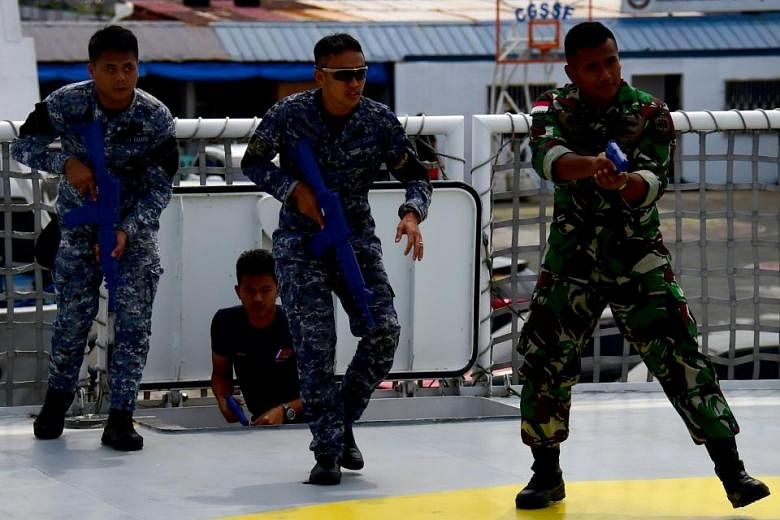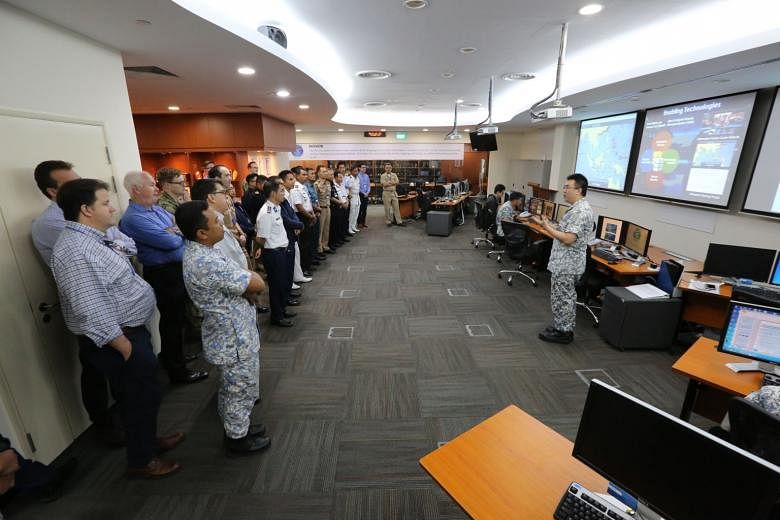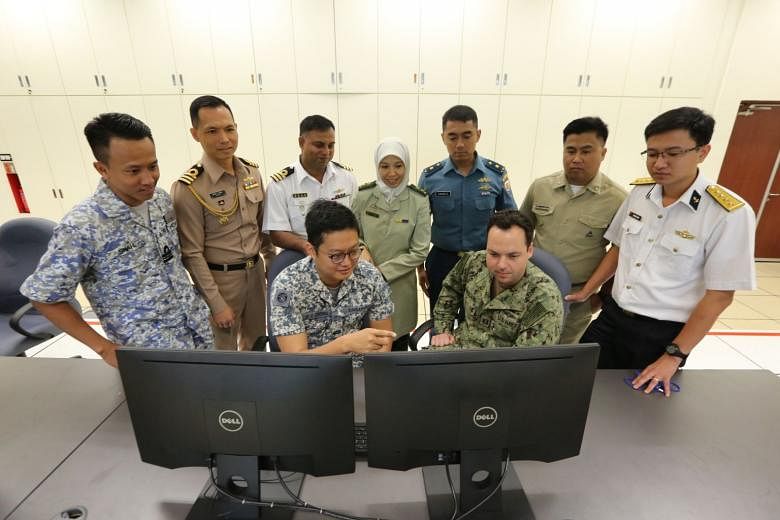SINGAPORE - Sailors and coast guards from the United States and eight Asian countries, including Singapore, are taking part in a two-week exercise to strengthen cooperation and training in tackling maritime security challenges, such as piracy, smuggling and illegal fishing.
The annual Southeast Asia Cooperation and Training (Seacat) exercise, led by the United States Navy, will also involve information sharing with the Maritime Operation Centre in Phuket, Thailand, for the first time.
Rear-Admiral Joey Tynch, US Navy commander of the Singapore-based Logistics Group Western Pacific, told reporters on Thursday (Aug 30): "I can't think of a better example of these countries working together for a common purpose, than what we see today at Seacat."
He was speaking to local and international media at the RSS Singapura - Changi Naval Base, where part of the exercise is being coordinated from.
Rear-Adm Tynch emphasised the importance of sharing and fusing information from different countries, saying it "leads straight to maritime domain awareness, and in my opinion, is the bedrock for rules-based order in the region".
The exercise this year, consisting of workshops and boarding operations at sea, involves the United States, Singapore, Bangladesh, Brunei, Indonesia, Malaysia, the Philippines, Thailand and Vietnam.
Now in its 17th year, it began on Monday (Aug 27) and will end next Friday (Sept 7).
Under Secretary for Arms Control and International Security at the US State Department Andrea L. Thompson said on Thursday (Aug 30) that the US continues to actively engage in the Indo-Pacific region.
She gave the examples of President Donald Trump's visits to Japan, South Korea, China, Vietnam, and the Philippines last year, as well as to Singapore earlier this year for the summit with North Korean leader Kim Jong Un.
Ms Thompson was also in Indonesia, Vietnam and Australia earlier this month. She said the trip was "not only to promote a free and open Indo-Pacific, (but) really also to work together more effectively to tackle global security challenges".
The sea phase of the exercise will include 15 boarding operations by multiple nations across three vessels, to train in real-world at-sea environments.
This segment will be held in the South China Sea, and in the Straits of Malacca and Singapore. It will be coordinated from the Multinational Operations and Exercises Centre at RSS Singapura - Changi Naval Base.
Liaison officers from different countries will use a newly-enhanced information sharing portal at the Republic of Singapore Navy's Information Fusion Centre, located at the base, to compile real-time updates on the regional maritime picture and identify vessels suspected of conducting illegal activities.
There was also earlier a week-long comprehensive visit, board, search and seizure workshop from Aug 27 held in Manila, the Philippines, led by the US Coast Guard.
Rear-Adm Tynch said the increasing complexity of the exercise reflects the stronger relationships between the countries that have grown over the years.
He said: "When Seacat began (in 2002), it was focused on counter-terrorism, but over the years it has evolved now and right now we've broadened the scope into cooperation and training as the main objectives."





